Reviews
Jeannot Szwarc
USA, 1984
Credits
Review by Abbey Bender
Posted on 11 June 2013
Source Warner Bros. DVD
Categories Failed Franchises
In the commentary track for Supergirl, which I listened to about five minutes of, director Jeannot Szwarc says that he wanted to “emphasize [the] grace and intelligence” of Superman’s female counterpart. Unfortunately, she possesses neither of these qualities.
The film had much potential for a positive reception: it was released in the early 1980s, hot on the heels of the second wave of feminism and chaperoned by the beloved Superman franchise, and it was populated with a respectable cast, including Faye Dunaway, Peter O’Toole, and Mia Farrow. But instead of an enterprise rife with a proto-Joss Whedon meld of cleverness and the supernatural, we’re given a supremely gratuitous shower scene at the all-girl boarding school where Supergirl ensconces herself.
Supergirl oozes with camp, but lacks the sly, winking sense of fun the best camp employs in order to facilitate the audience’s true enjoyment. When does camp cross over into a level of ridiculousness that can no longer be enjoyed? Here it’s when Selena, Dunaway as the antagonist, is introduced in a scene that’s perhaps best described as an evil picnic: the Omegahedron, an orb that Selena wants from Supergirl’s home planet, falls from the sky onto the head of a tiger skin she has laid on the grass next to her. Why does she have this large dead animal with her? Because she’s evil, of course! Similarly, upon first landing on Earth, Supergirl immediately encounters two sexist rednecks, who drawl out every icky misogynist advance the PG-rating permits. Why? To catalyze the heroine’s feminism, or something. This is the film’s sole (and laughably shallow) attempt at any kind of social commentary.
Supergirl could be clever, ass kicking, intriguingly troubled in some way or other, and - yes - cute. Helen Slater, unfortunately - though perhaps expectedly, given the dramatic lack of decent female superhero movies and the rote sexualization of women in so many of these types of films - embodies only the latter quality. She’s an all-American, doe-eyed blonde blank slate. When she changes into her alter ego, Linda Lee, she becomes a brunette, and her Breck girl mane takes on the brunt of her performance. Her lines are read without emotion, and any potential melodrama and subsequent audience enjoyment in the interplay between her and Dunaway is undermined by the attempts to emote on the part of both actresses.
It is rare for a superhero film to feature both a female protagonist and antagonist, but however inspired this conceit in characterization the result is bland. I spent most of my time imagining Nomi and Cristal from Showgirls, a bad female-driven movie done well, in lieu of Supergirl and Selena. Those characters may not have have been well-acted in a traditional sense, but at least they were fun and, more importantly, knowingly over-the-top. Supergirl, in contrast, establishes its antagonist as a character who is invariably serious in her nefarious actions. But she lives in a carnival spook house, and in result her actions never reach the depths of evil she strives towards. The spook house does not strike fear into our hearts; the most it can do is elicit a chuckle.
To encapsulate Supergirl’s loose, frustrating conception of camp, I must describe what is unquestionably the film’s piece de resistance: Supergirl’s love interest, Ethan, is trapped by Selena, who has the powers of the Omegahedron. In an attempt to distract Supergirl, Selena makes Ethan walk, zombie-like, straight into oncoming traffic. A commotion ensues, and he falls into the rusted, menacing, clearly vaginal opening of a construction vehicle. Is the truck actually meant to resemble a vagina dentata? How much longer is the film? Why on earth is a Popeye’s restaurant prominent in the onscreen composition? The answers are, respectively: probably not, a lot more, and no idea, other than product placement. Szwarc means to create drama, effectively absorbing us in the adventures of a superhero flying in on the winds of the second wave of feminism. But his work lacks any playfulness or self-conscious humor.
At one point, Selena says, in her scenery-chewing fashion, “Now I am really upset.” Such exposition! Szwarc doesn’t bother adding dimensions to flat comic book figures, so overanalyzing whatever potential Freudian potency the film has is all we are left with, if we don’t fall asleep first. We may chuckle at Selena’s statement, but I can’t picture anyone giving a damn what she’s upset about.
More Failed Franchises
-
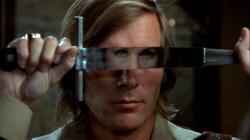
Captain Kronos - Vampire Hunter
1974 -
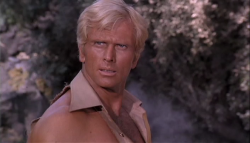
Doc Savage: Man of Bronze
1975 -
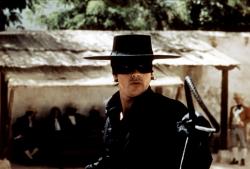
Zorro
1975 -
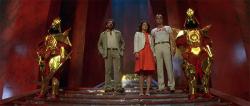
Flash Gordon
1980 -
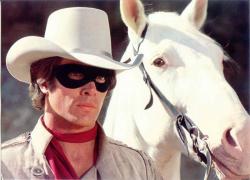
The Legend of the Lone Ranger
1981 -
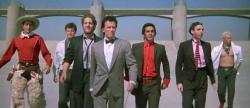
The Adventures of Buckaroo Banzai Across the 8th Dimension!
1984 -
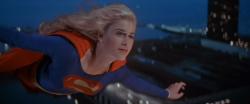
Supergirl
1984 -

Dune
1984 -
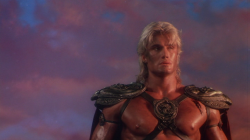
Masters of the Universe
1987 -
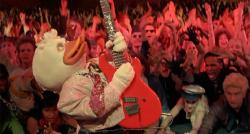
Howard the Duck
1986 -

Willow
1988 -
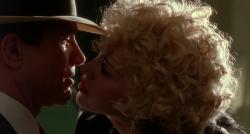
Dick Tracy
1990 -

The Rocketeer
1991 -
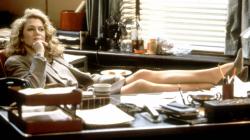
V.I. Warshawski
1991 -
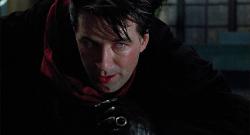
The Shadow
1994 -

Godzilla
1998 -
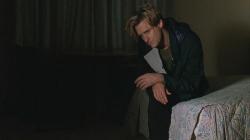
The Zero Effect
1998 -

The Mod Squad
1999 -

Hulk
2003 -

Master and Commander: The Far Side of the World
2003 -

John Carter
2012
We don’t do comments anymore, but you may contact us here or find us on Twitter or Facebook.



